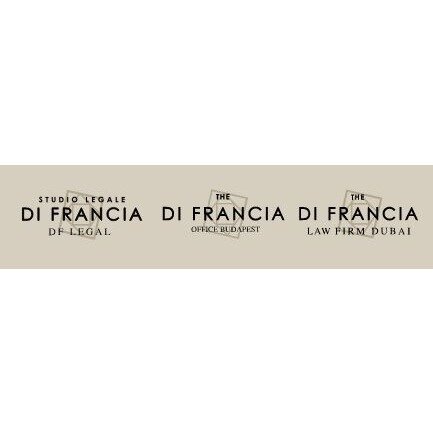Best Acquisition / Leveraged Finance Lawyers in Bologna
Share your needs with us, get contacted by law firms.
Free. Takes 2 min.
List of the best lawyers in Bologna, Italy
About Acquisition / Leveraged Finance Law in Bologna, Italy
Acquisition and leveraged finance law refers to the legal and financial frameworks involved in funding the purchase of companies, commonly through the use of borrowed capital. In Bologna, Italy, this legal area encompasses the structuring and negotiation of complex financial transactions where the acquisition cost is funded primarily by debt. It involves interaction with various financial institutions, private equity investors, and corporate buyers. Such transactions are subject to both Italian national laws and European Union regulations, and often require the expertise of legal professionals familiar with local market practices and compliance requirements.
Why You May Need a Lawyer
You may require a lawyer specializing in acquisition or leveraged finance in several situations:
- If you are acquiring a company and need to arrange significant financing.
- If you represent a financial institution or private equity fund providing acquisition financing.
- If you are structuring a leveraged buyout (LBO).
- If you need to navigate complex loan documentation or term sheets.
- If you require advice on regulatory compliance, especially with respect to anti-money laundering and banking rules.
- If you face negotiation or due diligence challenges, or disputes arising from the acquisition process.
- If you are dealing with cross-border acquisitions, which can introduce additional legal and tax considerations.
Local Laws Overview
Acquisition and leveraged finance transactions in Bologna operate within the framework of Italian civil law and, where applicable, European Union regulations. Key regulatory aspects include:
- Banking and Financial Regulations: The Bank of Italy and CONSOB oversee the conduct of financial institutions and securities markets.
- Security and Collateral: Italian law outlines strict rules on the creation and enforcement of security interests, which are vital in leveraged transactions.
- Corporate Law: Rules governing corporate structures, shareholder approval processes, and disclosure obligations are set forth in the Italian Civil Code.
- Anti-Money Laundering: Compliance with anti-money laundering statutes is mandatory for entities involved in financial transactions.
- Merger Control and Antitrust: Transactions may require review by Italian and European competition authorities, depending on the size and nature of the deal.
- Taxation: Deal structuring often needs to consider local and EU tax implications.
Frequently Asked Questions
What is leveraged finance?
Leveraged finance is the use of borrowed capital to increase the potential return of an investment, commonly used in corporate acquisitions or buyouts.
What types of acquisitions are commonly financed this way in Bologna?
Financing is often used for management buyouts (MBOs), leveraged buyouts (LBOs), and acquisitions by private equity funds or corporate entities.
Which legal documents are essential in an acquisition finance deal?
Key documents include the loan agreement, security agreements, intercreditor agreements, term sheets, and any relevant corporate consents or shareholder resolutions.
Are there restrictions on the types of collateral that can be used?
Yes, Italian law regulates the types of assets that can be pledged as security, and certain formalities must be observed for the creation and perfection of security interests.
Does Italian law require regulatory approvals for these transactions?
Some transactions, especially those involving regulated sectors or large mergers, require approval by Italian or European competition authorities. Financial institutions may also need approvals from banking regulators.
What role does due diligence play in acquisition finance?
Due diligence is essential to identify risks, confirm the value of assets, assess liabilities, and ensure full legal compliance before proceeding with the transaction.
Can foreign entities participate in acquisition finance deals in Bologna?
Yes, foreign investors, banks, and funds can participate, but they must comply with Italian laws and may face additional regulatory considerations.
What are the typical risks in leveraged finance transactions?
Key risks include insolvency, changes in regulatory or tax rules, interest rate fluctuations, and issues with the enforceability of security interests.
How long does the acquisition finance process typically take?
The timeline varies depending on the complexity of the deal, due diligence requirements, negotiations, and any regulatory approvals that are needed, but typically ranges from several weeks to several months.
How are disputes in acquisition finance deals resolved?
Disputes are commonly resolved through negotiation or mediation. If necessary, parties may resort to litigation in Italian courts or arbitration, depending on the agreements in place.
Additional Resources
Useful resources and organizations for those involved in acquisition or leveraged finance in Bologna include:
- Ordine degli Avvocati di Bologna: The local bar association, which can help you find qualified lawyers.
- Bank of Italy (Banca d'Italia): The main regulator for banking and finance.
- CONSOB: The Italian authority for securities and the stock market.
- Chamber of Commerce of Bologna: Offers support and information for businesses operating locally.
- Italian Ministry of Economic Development: Provides regulations and resources for business operations and investments.
Next Steps
If you require legal advice or support with acquisition or leveraged finance matters in Bologna, consider the following steps:
- Define the details and objectives of your transaction or issue.
- Collect all relevant documents, including financials, contracts, and correspondence.
- Consult with a qualified lawyer experienced in acquisition or leveraged finance in the local context.
- Request an initial meeting to assess risks and outline a strategic approach.
- Ensure clear communication with your legal advisor throughout each stage of the process.
- Stay updated on regulatory or legislative changes that may impact your transaction.
- Follow up regularly to track progress and resolve any issues promptly.
Lawzana helps you find the best lawyers and law firms in Bologna through a curated and pre-screened list of qualified legal professionals. Our platform offers rankings and detailed profiles of attorneys and law firms, allowing you to compare based on practice areas, including Acquisition / Leveraged Finance, experience, and client feedback.
Each profile includes a description of the firm's areas of practice, client reviews, team members and partners, year of establishment, spoken languages, office locations, contact information, social media presence, and any published articles or resources. Most firms on our platform speak English and are experienced in both local and international legal matters.
Get a quote from top-rated law firms in Bologna, Italy — quickly, securely, and without unnecessary hassle.
Disclaimer:
The information provided on this page is for general informational purposes only and does not constitute legal advice. While we strive to ensure the accuracy and relevance of the content, legal information may change over time, and interpretations of the law can vary. You should always consult with a qualified legal professional for advice specific to your situation.
We disclaim all liability for actions taken or not taken based on the content of this page. If you believe any information is incorrect or outdated, please contact us, and we will review and update it where appropriate.














